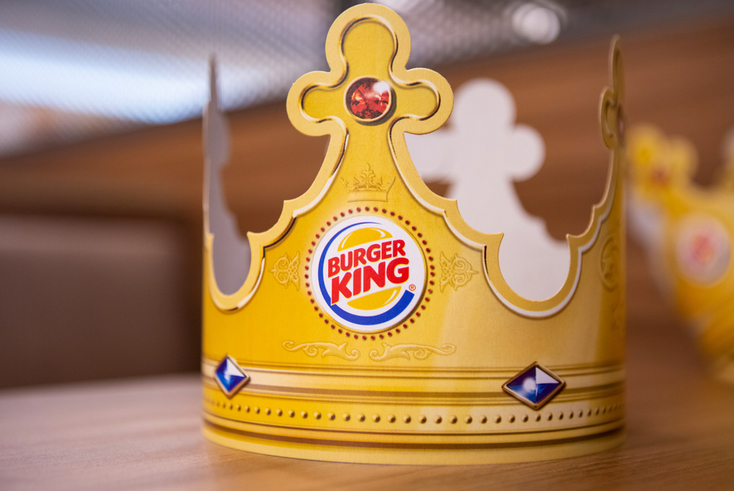How to not look stupid on International Women’s Day

Is it right for brands to be framing serious discrepancies as light-hearted social content? Blue State’s London managing director, Hannah Johnson, takes a look
If you squint hard enough, Burger King UK’s (now deleted) tweet about women being underrepresented in professional cooking, which played on the phrase “women belong in the kitchen”, could have been noble. There aren’t enough women at senior levels in professional cooking! It’s an important cause! But that’s not how it landed.
The outdated language it used and its provocative subtweeting instead took a pop at women, trolling them on a day that’s really supposed to be about them, in a year that has hit women very, very hard.
A complex issue was reduced to clickbait, oversimplified for Burger King’s own engagement.
Things have been unequal since, well, the dawn of time. But since Covid hit, the cause of equality has been set back, rather than making progress. The pandemic will ‘set women back 10 years’ in the workplace; it’s had a ‘devastating’ impact on gender equality; it’s ‘widened the gender pay gap’; support policies are ‘skewed towards men’. And that’s just in the privileged US and UK – western economies,
And still the best that many firms seem to be able to manage is a tweet; a screengrab of a Zoom chat of some women in the company; a hashtag. It’s leaving a sour taste.
The phrase ‘nothing about us without us’ has a long history – it’s currently used mainly by the disability rights movement. But it’s something that has resonance for a lot of groups, and here too. In effect: why are you tweeting about this? Why aren’t you talking to women and fixing it?
The Pay Gap App’s efforts on Twitter this year have been outstanding. Every brand or company that tweets about IWD, and which has reported its gender pay gap, is called out. The results are not pretty.
A few highlights include Barclays, which has a gender pay gap of over 21%, and Elizabeth Arden, which has an average female salary more than 40% behind its average male salary.
In this organisation, women's mean hourly pay is 48.1% lower than men's. @ElizabethArden #InternationalWomensDay https://t.co/hYT05dta1L
— Gender Pay Gap App (@PayGapApp) March 8, 2021
With gender pay gap reporting now temporarily suspended, are organisations going to feel the pressure to change? Or will the number of years women need to work to have a pension equal to a man’s only grow longer?
Meanwhile, in the midst of a pandemic it is women who have paid a higher price than men.
From stepping back from work for childcare, being made redundant or finding fewer employment opportunities out there. Latest research indicates that employment for women may not recover to pre-pandemic levels until 2024 — two full years after a recovery for men. Another indignity.
Can brands – everyone – take IWD 2021 as a starting line? We can’t be here again this time next year, surely?
[advert position=”left”]
Inequality is a consequence that is falling on women. But despite the fact we celebrate International WOMEN’S day, it’s not ‘women’s’ problem. It’s not caused by women. It lands on them. The problem is inequality, and it’s caused by sitting back and seeing it as just ‘the way things are’. It can’t continue.
The problem can only be solved when everyone – and men too – actively work to stop it. Not just to view it as a ‘woman’s’ problem, but to be actively anti-sexist, anti-inequality – to understand, to step up.
Yes, in advertising, in marketing, in media, in business – but everywhere, frankly. Women in poverty, in marginalised communities suffer more from inequalities in every area, including pay, rights, recognition and other forms of racism and discrmination – and then on top of this, Covid and all its separate consequences.
This isn’t a 24-hour fix, or something that needs one day of attention. It needs meaningful, long term action, and it needs it now more than it ever did. No more fatuous IWD brand tweets in 2022. (Or ever.) Take action, take it now and work hard to try and create tangible change within your organisation and society so that next year, IWD is about the meaningful progress made and not the gaps threatening to create further division.
That is, in some ways, what Burger King tried to do. But this has been completely overshadowed by its crass communications on the matter. The brand is investing in women in the restaurant industry. But its delivery and impact completely overshadowed its intent.
It’s just over 100 years in the UK, and 100 years exactly in the US, since women won the vote. And though women were given ‘all the rights and responsibilities of citizenship’, they weren’t given a society that gave them access to these. Society didn’t see the need to repair the damage. Instead, the more powerful half of society continued to benefit from it. It’s got to change.
So, what can we all do about it before IWD 2022?




